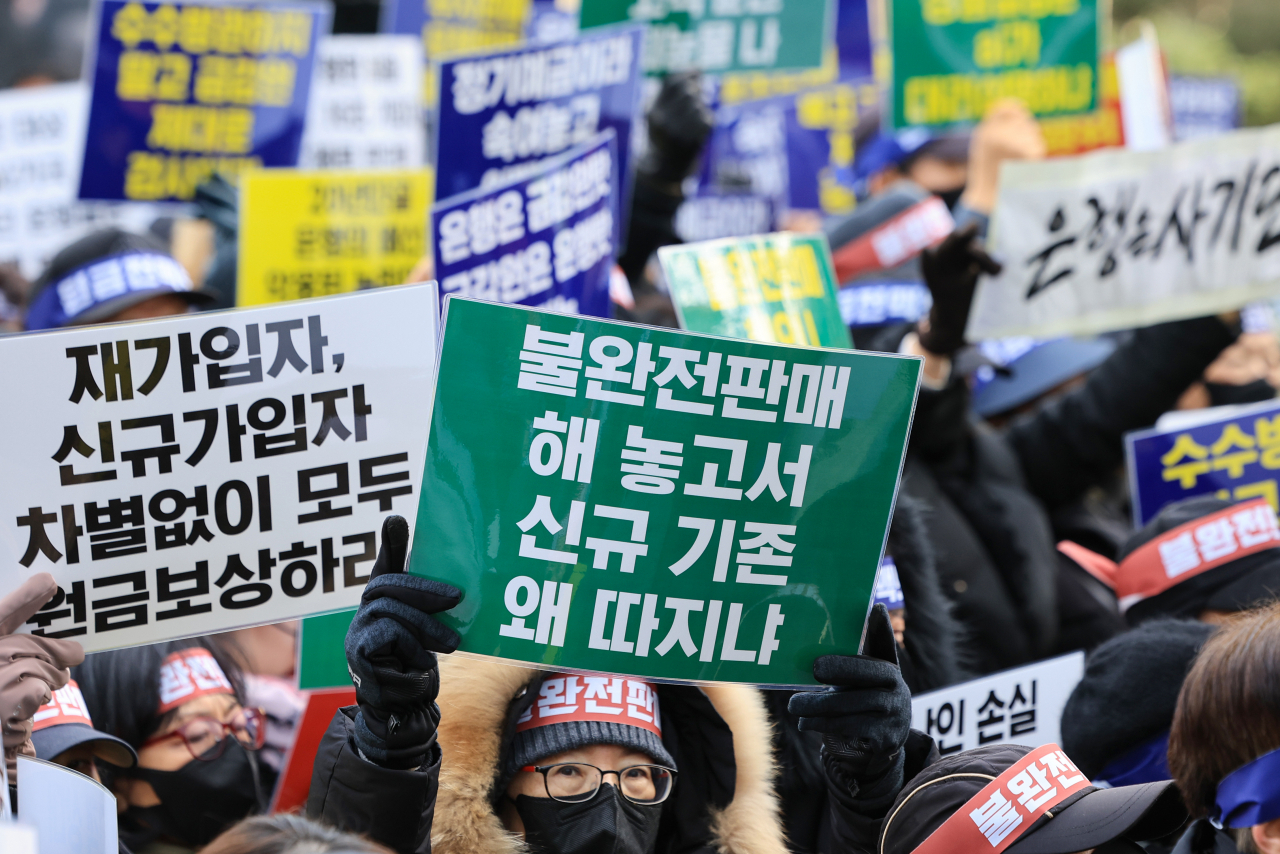ELS crisis deepens as Hong Kong index sags further
Investors call for equal compensation, whether first-time or experienced
By Choi Ji-wonPublished : Jan. 21, 2024 - 17:48

Losses inflicted on Korean investors from derivatives tracking the Hang Seng China Enterprises Index are swelling even faster than expected, as the notorious Hong Kong index has dipped further recently.
The HSCEI, which had remained at around 5,500 points since late 2023, has dropped dramatically in the last week or so, sinking by 11.12 percent just this year to close at around 5,127 on Friday.
The plunge means a larger toll on investors here, as South Korea braces for the maturation of some 10.2 trillion won ($7.62 billion) of equity-linked securities tied to the HSCEI in the first half of this year alone.
The HSCEI-tied fixed-income derivative pays out a return based on the performance of stocks listed on the Hong Kong bourse. Most of the outstanding balance of 19.3 trillion won, counted as of November, had been sold during the early half of 2021, when the index hovered between 10,000 and 12,000 points, before skidding steeply to below 6,000 over the next two years.
The banking sector, which had sold 82 percent of the total outstanding balance, confirmed a 52.7 percent loss already this year, with around 229.6 billion won from the principal of 435.3 billion won returned to investors upon maturation as of Friday. The figure inched up from 50.7 percent tallied a week earlier.
The recent dip in the HSCEI is expected to push the loss ratio up to nearly 60 percent, according to sources from the financial sector. While the loss rates announced by the local brokerages of their Hong Kong-tied ELS products were around 50 percent early in the year, the figures escalated steeply to nearly 56 percent in just the past week.
The Financial Supervisory Service is currently conducting an on-site probe for possible misselling by the 12 major sellers, as well as an investigation into complaints filed by investors. According to the FSS, it will draw up compensation measures according to different types of misselling based on the complaints.
One of the most contentious standards of reimbursement is whether the investor is a first-time investor, and whether he or she is of an age group advanced enough to understand the potential risks of such products. Based on the principle that investors invest at their own risk, those experienced in such high-risk derivatives and repurchasers of the ELS product would be compensated less compared to newcomers, the FSS said.
In response, investors argued that this is a form of discrimination and called for full compensation of their principal equally for all investors who incurred losses.
According to FSS data, only 8 percent of the Hong Kong-tied ELS investors had no experience in investing in similar high-risk derivative products.
The financial regulator said it aims to complete the ongoing investigation by March, after which it will kick off the dispute settlement process.



















